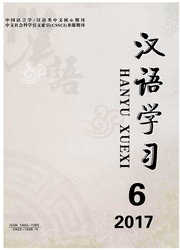

 中文摘要:
中文摘要:
本文考察表达动作的重复或持续意义的成分在语义变化中的主观化现象。主要考察两类成分,一类是副词“更”“还”“再”“又”,另一类是汉语普通话和方言中的持续体标记“着”“在”等。研究发现,从动作的重复和持续可以发展为表示性质或状态的程度的增量,还可以发展为对命题的强调,并可能进一步发展出惊讶、质疑、否定等语气。在这一过程中,主观性的程度逐步加深。通过对比发现,表达持续义的成分比表达重复义的成分在主观化的道路上走得更远,这可能是因为持续比重复的语义强度更高。
 英文摘要:
英文摘要:
In the history of the Chinese language, we find that some elements that originally referred to repetition or continuation of activities obtained the function of expressing the augmentation of certain degree or emphasis of a proposition, some even could obtain other modality functions. Therefore, we can say that they experienced subjectification during their semantic changes. We explored two types of elements. One is adverbs, such as "geng", "hal"', "zai", and "you"; the other is post-verbal progressive markers such as "'zhene" in Standard Chinese and "zai" and other forms in some dialects. We find that those elements that express continuation go farther in the process of subjectification, which may due to the fact that continuation has more emphasis entailment than repetition.
 同期刊论文项目
同期刊论文项目
 同项目期刊论文
同项目期刊论文
 期刊信息
期刊信息
